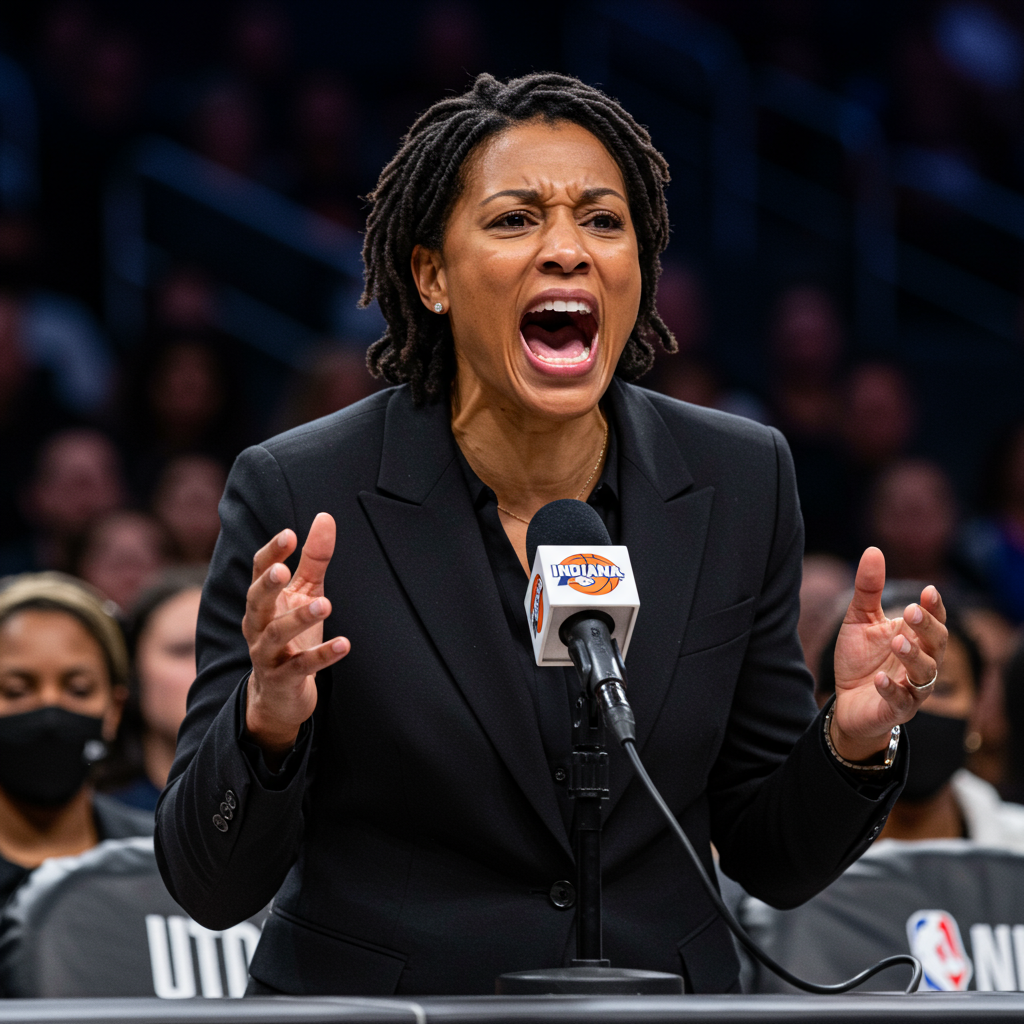The Indiana Fever secured a spot in the Commissioner’s Cup title game with a Tuesday night win over the Connecticut Sun, but the victory was overshadowed by intense physicality, multiple ejections, and a furious postgame critique of WNBA officiating from Fever head coach Stephanie White.
White didn’t mince words after the chaotic matchup, expressing deep frustration with the consistency and standard of officiating across the league. Her comments came after a series of contentious moments on the court, including a controversial foul on star rookie Caitlin Clark and three player ejections late in the game.
Coach White’s Blistering Criticism
According to White, the issues with officiating aren’t new. “I think every year when we have our league meetings in the fall and in the spring, we say the same thing over and over and over and nothing has changed,” White stated postgame.
While acknowledging the difficulty of the officials’ job, she drew a stark contrast between the evolution of the game and the performance of those calling it. “Players are faster, they’re better, they’re bigger, they’re stronger. They’re as good as they’ve ever been… The game is fast now. Things are happening quickly. Everybody’s getting better except the officials.”
White argued that the failure of officials to control games by consistently calling fouls and managing physicality directly contributes to the kind of heated confrontations seen against the Sun. “When they allow that stuff to happen — and it’s been happening all season long… this is what happens,” she said. “You’ve got competitive women who are the best in the world at what they do… when you allow them to play physical and you allow these things to happen, they’re going to compete and they’re gonna have their teammates’ backs.”
Fever-Sun Game Erupts
Tensions simmered throughout the game between the Fever and Sun, fueled in part by existing history between players like Caitlin Clark and Jacy Sheldon, who had notable college matchups.
The on-court friction escalated significantly in the second half. A pivotal moment occurred when Sheldon was assessed a Flagrant 1 foul for a poke to Clark’s eye. During the subsequent scuffle, Sun forward Marina Mabrey notably knocked Clark to the ground. Despite this, Mabrey was not ejected, though technicals were issued to Clark, Tina Charles, and Mabrey.
As the game continued and the Fever built a large lead, physicality remained high. Late in the fourth quarter, Clark hit a three-pointer over Sheldon and exchanged some words, telling her, “You can’t guard me.” This interaction also largely went unaddressed by officials.
The simmering tension boiled over in the final minute when Sun forward Sophie Cunningham committed a hard foul on Sheldon during a fast break. This instantly triggered another scuffle, resulting in ejections for both Cunningham and Sheldon, along with Sun forward Lindsay Allen.
A League-Wide Issue, Says White
White was quick to point out that she sensed the escalating physicality early in the game and had spoken to officials during play. She also stressed that this officiating issue isn’t unique to the Fever or this specific game, citing incidents she’s observed across the WNBA landscape this season.
This isn’t the first time White has publicly criticized officiating. In May, she voiced strong disapproval after a loss to the Liberty, calling a perceived lack of calls “disrespectful.” The Fever have also been involved in other notable physical confrontations this season, including their opening game against the Chicago Sky that involved Clark and Angel Reese, an incident that also drew significant attention and official review.
While White placed blame squarely on the officials, the team has also actively worked to manage player behavior in heated moments. Veteran guard Erica Wheeler, for example, has taken on a crucial mentorship role for Caitlin Clark, often guiding her away from officials or de-escalating situations on the court to help her manage her emotions and avoid technical fouls, demonstrating the team’s internal efforts to navigate challenging game environments.
Despite facing a likely fine from the league office for her outspoken comments, White’s willingness to repeatedly address the officiating issue publicly underscores the Fever’s conviction that it is a significant problem impacting game flow and player safety across the WNBA.




